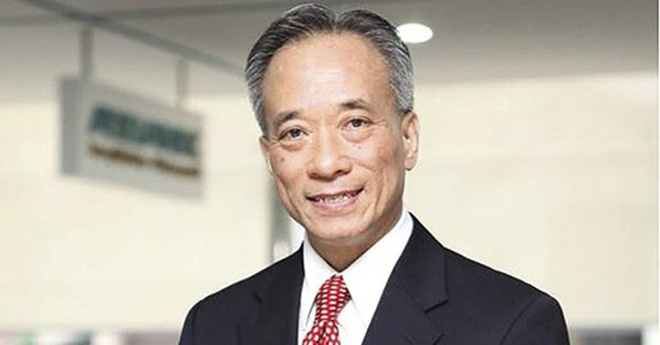Vietnam turns semiconductor vision into action
The global semiconductor industry is being reshaped by geopolitical tensions, shifting supply chains, and the surge of digital technologies.




Real estate business, an essential sector in daily life, is sensitive to market information. Here are some advice that real estate firms might follow to handle PR crises.
.jpeg)
Dr. Nguyen Tri Hieu, a Specialist in Finance: “Immediate response and preparedness for any possible situations are the keys.”

“When US enterprises are hit by a crisis, the very first thing to do is to immediately make a public appearance and cooperate with the media to publish direct and correct information on the issue, which is currently highly controversial among the public. The more slowly they respond, the larger malicious rumors and uncertainty spreads. For instance, the consequences of almost all PR crises in Vietnam were terribly magnified because corporates leaders evaded confronting with the general public.
However, “prevention is better than cure”. Every firm should ensure that it is appropriately prepared for any possible crises. Looking at US real estate firms; they often have their own crisis management team, which is responsible for developing a contingency plan in advance. The plan should clearly stipulate the designated people to speak publicly about the crisis, how they would answer the questions from the press, or the tasks for each critical step. Accordingly, they tend to be united and proactive in protecting their reputation.
Another thing to remember: any information informed both internally and externally must be accurate and transparent. Providing manipulated or wrong information could trigger backfire and bring detrimental consequences to the reputation of the firm.”
Ms. Nguyen Thi Ngan, Deputy Director of Marketing and Brand Management, Tan Hoang Minh Group: A sincere and penitent attitude would be greatly appreciated.”
“As the saying goes, ‘It takes 20 years to build a reputation, but only 5 minutes to destroy it”. From my perspective and experience, apart from the essential skills in crisis management, the critical things are the great transparency in information processing and the sincere, customer-oriented attitude. In any case, regardless we are right or wrong, the responsible manner of the enterprises during the crisis could provoke the sympathetic and positive reaction from the public.
In brand management strategies, the key is to make the press and social media clearly speak out what firms are trying to explain to the public. An excellent reputation is not earned by not creating crises but by handling them skillfully. Sometimes, it can even turn a small risk into a strong chance to promote the influence among the public.”
Mr. Pham Duc Toan, Chairman and General Director, EZ Property Vietnam ,JSC: “Ready to face the crisis and make rapid decisions”
.jpg)
“During a crisis, rumors and information on social media are not necessarily correct, however, they could profoundly influence the public opinion. To prevent and minimize the consequences of a PR crisis, any firms should remember two things:
First, brand management guidelines and professional ethics should be devised and strictly followed. Moreover, a code of conduct with customers, partners and the media should be applied to prevent a conflict of interests among all sides, hence minimizing crisis risks.
Second, if the crisis occurs, I think the very first thing to do is to publish correct information and to be proactive. For example, we should proactively contact the press or negotiate with partners and customers on related matters as soon as possible. During tackling a crisis, we should aim at the harmony of interests between both sides to prevent exacerbating the problems.
Some enterprises are overconfident about their reputation and ability; they challenge the press. This is unwise, especially in this social media era. If the issue is ignored and concealed, dealing with its consequences will be unnecessarily demanding, costly, or even worse, ineffective.”
Mr. Tran Xuan Huy, General Director, Kingland Real Estate Company Limited: “Interacting with customers and the press on a regular basis”
“In the event of a serious crisis, the very first thing to do is to interact with customers, provide them with correct information through a designated person. Additionally, enterprises should focus on training staff to avoid any nuisance caused by misunderstanding or ineffective communication. Clubs or customer conferences should be constantly maintained to enhance the mutual understanding between firms and customers.
In the era of Internet and communication advancement, enterprises cannot help being judged from various aspects. By interacting with customers and listening to their opinions, they can find a way to perfect themselves; or else, they will be eliminated in such a competitive environment.”
The global semiconductor industry is being reshaped by geopolitical tensions, shifting supply chains, and the surge of digital technologies.
The change in APA approval authority is expected to shorten processing time and enhance business proactiveness in international tax negotiations.
As hybrid cloud systems grow more complex, Vietnamese enterprises are struggling to detect cybersecurity threats moving laterally within their own networks.
The submission of the draft resolution on Vietnam’s international financial center to the National Assembly heralds a new developmental era for the country.
More than just running a 5-star resort, Kristian Petersen is redefining the art of hospitality with a humane and sustainable leadership philosophy.
For Tyna Huynh, co-founder of Drinkizz, organic is not just a food choice but a way of life that fosters a deep connection between people, nature and community.